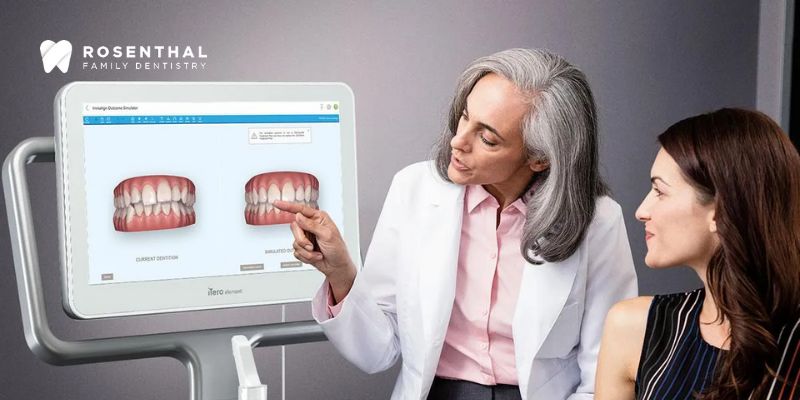A bright, radiant smile is often associated with good health and confidence. With the plethora of teeth-whitening treatments available on the market today, it can be overwhelming to decide which one is best suited for your needs. Whether you are looking for professional-grade treatments or over-the-counter solutions, here is a comprehensive guide to help you navigate through the options and find the perfect teeth-whitening treatment for you.
Tips for Choosing the Best Teeth-Whitening Treatment Option
1. Understand Your Teeth Whitening Needs
Before diving into any teeth-whitening treatment, it is essential to understand your specific needs and expectations. Consider factors such as the level of discoloration, the sensitivity of your teeth, and your budget. If you have sensitive teeth or existing dental issues, consulting with a dentist is crucial to avoid potential complications. Additionally, determining your desired outcome—whether it is a subtle shade improvement or a dramatic transformation—will guide you in selecting the most suitable treatment.
Once you have a clear understanding of your needs, you can explore various teeth-whitening options, including professional in-office treatments, at-home kits, and natural remedies. Professional treatments typically offer faster and more noticeable results but may come with a higher price tag. On the other hand, over-the-counter products are more affordable and convenient but may require consistent use for significant effects. By aligning your expectations with the available options, you can make an informed decision that meets your requirements.
2. Evaluate Different Teeth Whitening Methods
Teeth-whitening treatments come in various forms, each with its unique advantages and limitations. Some of the most common methods include whitening toothpaste, whitening strips, tray-based systems, and professional dental procedures. Whitening toothpaste often contains mild abrasives or chemical agents to remove surface stains, making it a suitable option for maintaining brightness between treatments. However, it may not deliver significant results for deeper discoloration.
Whitening strips and tray-based systems involve applying a peroxide-based gel directly onto the teeth using strips or custom-fitted trays. These products are designed to penetrate the enamel and break down stains effectively. While over-the-counter options are widely available, professional-grade treatments administered by a dentist typically yield faster and more consistent results.
Additionally, in-office procedures such as laser or light-activated whitening can provide immediate whitening in a single session, making them ideal for those seeking instant gratification. Consider the level of convenience, cost, and desired outcome when evaluating different whitening methods to find the most suitable option for you.
3. Consider the Safety and Potential Side Effects
While teeth-whitening treatments are generally safe when used as directed, it is essential to be aware of the potential side effects and risks associated with each method. Peroxide-based whitening products, commonly found in both over-the-counter and professional treatments, can cause temporary tooth sensitivity and gum irritation. Individuals with sensitive teeth or gum disease may experience heightened discomfort and should consult with a dentist before undergoing whitening procedures.
Moreover, overuse or improper application of whitening products can lead to enamel damage and increased tooth sensitivity. It is crucial to follow the instructions provided by the manufacturer or dental professional and avoid excessive whitening to prevent adverse effects. Additionally, certain underlying dental conditions, such as cavities or worn enamel, may require treatment before pursuing teeth whitening to ensure optimal results and minimize potential risks.
Before embarking on any teeth-whitening regimen, take the time to research the safety profile of the chosen method and consult with a dental professional if you have any concerns. Your dentist can assess your oral health status and recommend the most appropriate whitening approach tailored to your individual needs and sensitivities. By prioritizing safety and understanding potential risks, you can undergo teeth whitening with confidence and peace of mind.
4. Maintain Results with Proper Oral Care Practices

Once you have achieved your desired level of teeth whitening, maintaining the results requires consistent oral hygiene practices and lifestyle habits. Brushing your teeth at least twice a day with fluoride toothpaste and flossing daily helps remove surface stains and prevent the buildup of plaque and tartar, which can diminish the brightness of your smile. Additionally, limiting consumption of staining foods and beverages such as coffee, tea, and red wine can help preserve the whiteness of your teeth.
Regular dental check-ups and professional cleanings are essential for monitoring oral health and addressing any concerns promptly. Your dentist can provide personalized recommendations for maintaining your newly whitened smile, including the use of touch-up whitening treatments or professional-grade products for home use. By incorporating these practices into your oral care routine, you can prolong the effects of teeth whitening and enjoy a vibrant, healthy smile for years to come.
5. Explore Natural Teeth Whitening Remedies
In addition to commercial teeth-whitening products, there are also natural remedies that can help brighten your smile. These remedies are often gentler on the teeth and may be preferred by individuals who are sensitive to peroxide-based treatments or want to avoid chemical ingredients. Some popular natural teeth-whitening methods include oil pulling, baking soda paste, and hydrogen peroxide rinse.
Oil pulling involves swishing a tablespoon of coconut oil or sesame oil in your mouth for 15-20 minutes to remove bacteria and surface stains. Baking soda, mixed with a small amount of water to form a paste, can act as a mild abrasive to polish away stains when used in moderation. Similarly, diluted hydrogen peroxide can help lighten stains and kill bacteria when used as a mouthwash. While these natural remedies may not deliver dramatic results overnight, they can contribute to gradual teeth whitening and improved oral health over time.
6. Seek Professional Guidance for Customized Solutions

When navigating the myriad of teeth-whitening options available, seeking professional guidance can provide valuable insight and personalized recommendations tailored to your unique circumstances. Dentists are trained to assess oral health conditions, identify underlying issues, and recommend the most suitable whitening approach based on your specific needs and goals. Whether you are considering professional in-office treatments or at-home whitening kits, consulting with a dental professional can help you make an informed decision and achieve optimal results safely and efficiently.
During a dental consultation, your dentist will evaluate factors such as the severity of discoloration, tooth sensitivity, and overall oral health to determine the most appropriate whitening treatment for you. They may also discuss alternative options, such as dental veneers or bonding, for individuals with extensive staining or structural concerns. By partnering with a trusted dental provider, you can embark on your teeth-whitening journey with confidence, knowing that you are receiving expert guidance and care every step of the way.
Conclusion
In conclusion, exploring natural remedies and seeking professional guidance are additional strategies to consider when choosing the proper teeth-whitening treatment for you. By combining these approaches with a thorough understanding of your needs and preferences, you can achieve a brighter, more confident smile that enhances your overall appearance and self-esteem. Remember to prioritize safety, consult with a dental professional, and maintain proper oral care practices to enjoy long-lasting results and optimal oral health.



